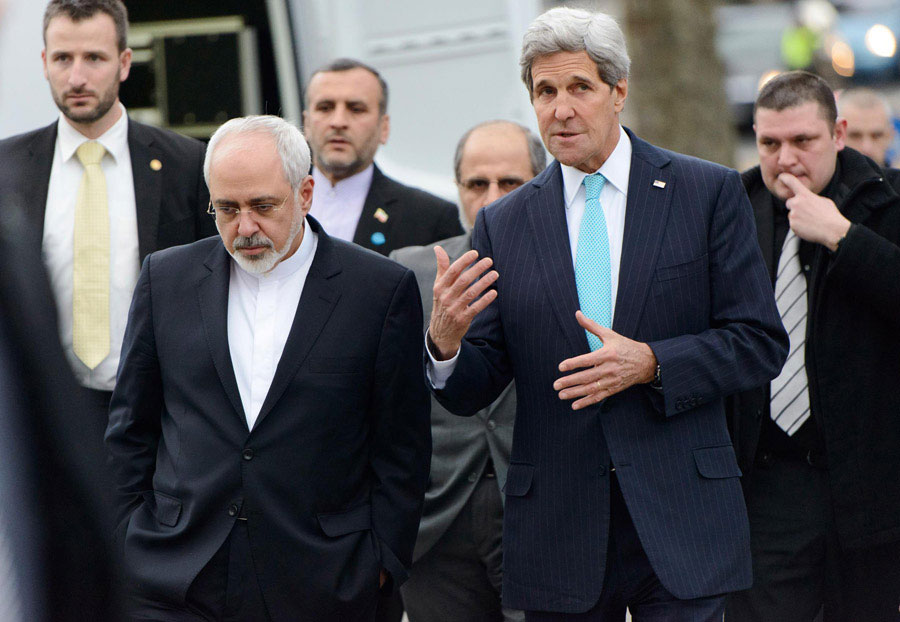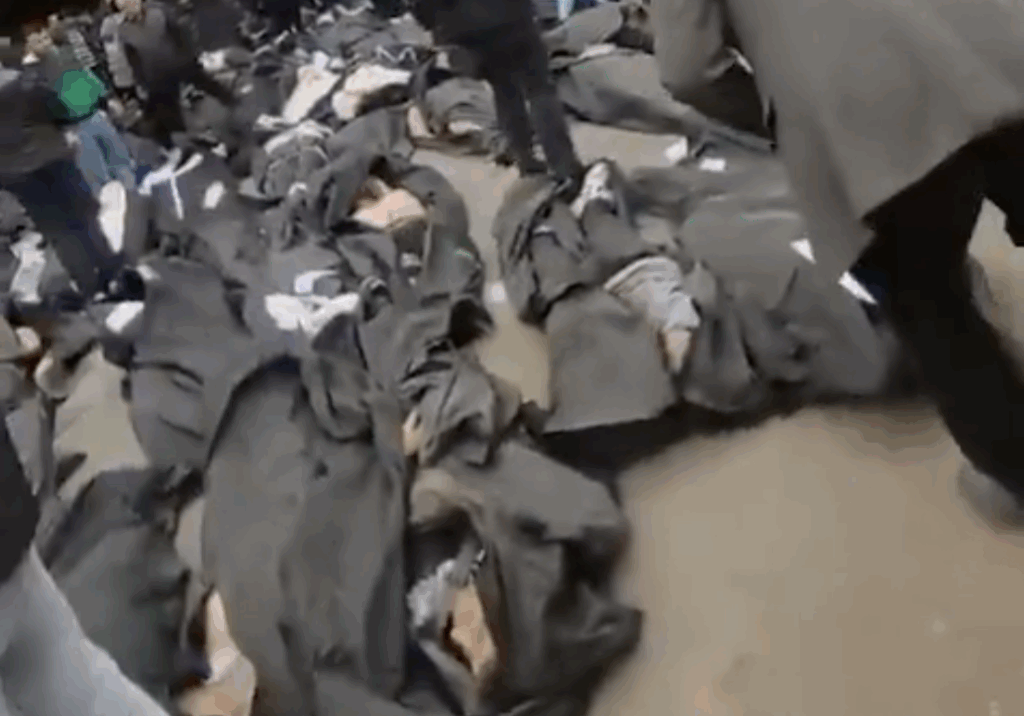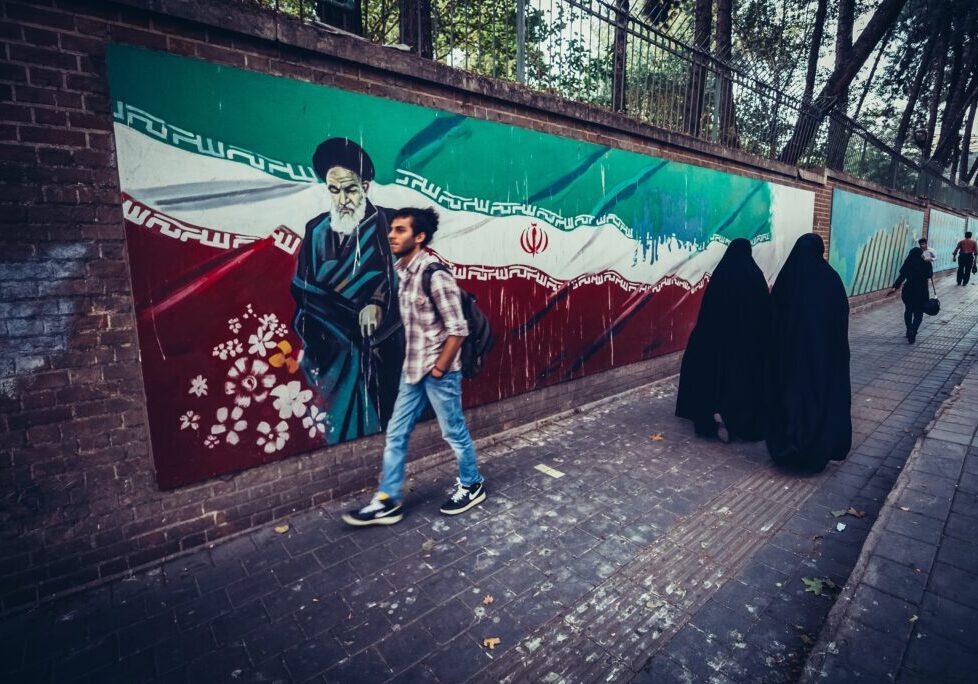Australia/Israel Review
How the Iran nuclear deal came about
Sep 18, 2015 | Elliott Abrams

Elliott Abrams
Over a decade ago, information was released showing that Iran had a large and hidden nuclear program. This information was not discovered by Western or Israeli intelligence, which is worth remembering when people say our intelligence will always discover whatever secret program Iran has under way. Instead, the information was discovered by the Iranian resistance group, the MEK. Intelligence agencies followed up, and soon the scope and the danger were clear. Iran was developing centrifuges, enriching uranium, trying to build intercontinental ballistic missiles, and working on warheads.
There were two immediately available methods of dealing with an Iranian nuclear weapons program. One was containment: give up the idea of trying to stop it, and cope with the inevitable fact of an Iranian bomb. The other method was to bomb it, and destroy the program or as much of it as we could.
Rejecting those two alternatives as undesirable, the EU 3 (the UK, France and Germany) and the United States embarked about a decade ago on trying to confect a third way, a diplomatic route to stopping Iran. We would negotiate a nuclear deal with the regime that would end its program, using sanctions to pressure Iran while keeping the military option available.
What were these negotiations supposed to achieve? Let me give it to you, not in my words, but those of Obama Administration officials.
FIRST, Iran would have to dismantle its nuclear infrastructure. In December, 2013, US Secretary of State Kerry said in congressional testimony, “I don’t think that any of us thought we were just imposing these sanctions for the sake of imposing them. We did it because we knew that it would hopefully help Iran dismantle its nuclear program.”
SECOND, Iran would have to give up enrichment. In November 2013, Secretary of State Kerry told a TV news interviewer that “There is no right to enrich. We do not recognise a right to enrich. It is clear, in the – in the NPT, in the nonproliferation treaty, it’s very, very [clear] that there is no right to enrich.”
THIRD, the heavy water reactor at Arak, part of a possible plutonium route to a bomb, would have to go. In December 2013 Kerry told the House of Representatives that “From our point of view, Arak is unacceptable. You can’t have a heavy water reactor.”
FOURTH, the underground facility at Fordow should be closed. President Barack Obama said in December 2013 that “We know that they don’t need to have an underground, fortified facility like Fordow in order to have a peaceful nuclear program.”
FIFTH, Iran would have to come clean on its previous warhead work. Wendy Sherman said exactly that in February of last year: “We have required that Iran come clean on its past actions as part of any comprehensive agreement.” “They have to do it,” Secretary of State Kerry said in April of this year. “If there’s going to be a deal, it will be done.”
You may recall that in 2011, after three years of trying and failing to get Iran to engage with it, the International Atomic Energy Agency (IAEA) released a public dossier specifying its concerns. The IAEA concluded then that Iran had carried out a wide range of activity “relevant to the development of a nuclear explosive device” and some of these activities were “specific to nuclear weapons.” About all of this Iran would have to come clean.
SIXTH, the deal would have to end Iran’s “break-out” capability – to leap to a nuclear weapon before we can find that out and do something about it. President Obama said in February 2014 that “It is my strong belief that we can envision an end state that gives us an assurance that even if they have some modest enrichment capability, it is so constrained and the inspections are so intrusive that they, as a practical matter, do not have breakout capacity.”
SEVENTH, the Iranian ballistic missile program would be constrained. After all, what is the purpose of an ICBM? You don’t build an ICBM to carry a conventional bomb. You build it for one purpose only: to carry nuclear weapons. The current American Secretary of Defence, Ashton Carter, said in July that “the reason that we want to stop Iran from having an ICBM program is that the ‘I’ in ICBM stands for intercontinental, which means having the capability of flying from Iran to the United States.”
EIGHTH, we are in this entire crisis because Iran has been lying and cheating about its nuclear program for years. Inspections and verification were therefore key. In April of this year US Deputy National Security Advisor Ben Rhodes said, “Under this deal, you will have anywhere, anytime 24/7 access as it relates to the nuclear facilities that Iran has.”
NINTH, sanctions would not be lifted until Iran complied fully with all its promises. “Iran is not open for business until Iran is closed for nuclear bombs,” said Kerry in March 2014.
The agreement that was signed with Iran does not meet ANY of those requirements. Not one.
Iran does not dismantle one centrifuge or close one facility. It will operate 6,000 centrifuges for ten years, and start after eight years to manufacture more advanced centrifuges that are 20 times as productive. So we have given up on the idea that Iran must not enrich uranium or produce weapons-grade plutonium, and after the agreement ends in 15 years it can do so without limits on the number of reactors or centrifuges.
Iran is not coming clean on its previous warhead work.
All restrictions on ballistic missiles are lifted after eight years under the agreement.
There will be no “anywhere, anytime” inspections, but instead a cumbersome procedure that on paper can take 24 days – but in reality may take many more.
With all this in mind, it is quite remarkable that anyone can consider this agreement with Iran to be a good one.
It marks in fact a steady decline in the demands placed on Iran and an acceptance of Iran as a threshold nuclear weapons state. All we would have done with this Joint Comprehensive Plan of Action (JCPOA) is to kick the can down the road, so that Iran’s nuclear program is delayed.
Actually it’s far worse than that. Sanctions on Iran end next year and it will receive both a signing bonus, getting its hands on perhaps US$100 billion in frozen funds, and of course the money from more oil sales and more investment over the subsequent years. The arms embargo on Iran ends in only five years, so it can begin to spend some of that money on any armaments it wants: advanced combat jets, tanks, smart bombs, combat helicopters, missile frigates, you name it.
And all of this goes to a regime that is the world’s leading state sponsor of terrorism. That now is largely in control of four Arab capitals – Baghdad, Sana’a, Beirut and Damascus. That is one of the bloodiest human rights violators in the world, savagely repressing its own people. That repeatedly calls for “Death to Israel,” for the elimination of the Jewish State.
It is that state that will receive all this cash, and an end to the arms embargo, and over the next ten to fifteen years whose nuclear program will move from being criminal and illegal to one that has been legitimised.
Considering that Iran is but one nation, of 70 million people and a very weak economy, with an antiquated armed force, one has to wonder how this actually happened. The JCPOA itself states that it is a “fundamental shift” meant to build “a new relationship with Iran.” It is indeed a fundamental shift: from resisting Iran to accepting its ambitions and pretensions and demands.
I believe it happened for several reasons. First, it’s clear that President Obama is hoping for some “fundamental shift” inside Iran. So are we all, including the majority of the people of Iran – from the Islamic Republic to a decent and democratic government. Tragically, this deal makes such a shift far less likely – because it throws so much money at the regime. Some of those funds will buy more terrorism; some will be spent at home to palliate the populace.
Will fundamental change come to Iran? As Kissinger and Shultz have noted, “what gives us the confidence that we will prove more astute at predicting Iran’s domestic course than Vietnam’s, Afghanistan’s, Iraq’s, Syria’s, Egypt’s or Libya’s?” So, agreeing to the JCPOA with the hope of change in Iran in only ten years is a dangerous bet.
So is the bet that Iran under this regime will soon become a status-quo power with which we can all work to end regional conflicts? That’s more of a dream than a bet under this regime, but it is Mr. Obama’s dream and presumably that of the EU3. President Obama talked last December of Iran becoming “a very successful regional power,” a phrase that gave nightmares to Israelis and Arabs alike.
There will be no change in Iran’s foreign policy – except that it will now have more money. The idea that a “fundamental shift” is coming is an illusion.
The JCPOA is a fine agreement if you are confident that Iran will be gone in ten or fifteen years, or totally transformed. If you do not believe this or are not sure of it, the arrangement is dangerous.
Elliott Abrams is a senior fellow for Middle Eastern Studies at the Council on Foreign Relations in Washington. He served as deputy Assistant to the President and deputy National Security Advisor in the Administration of President George W. Bush, where he supervised US policy in the Middle East, from 2001 to 2009. He visited Australia in early September as a guest of AIJAC.
This article is featured in this month’s Australia/Israel Review, which can be downloaded as a free App: see here for more details.
Tags: International Security, Iran






